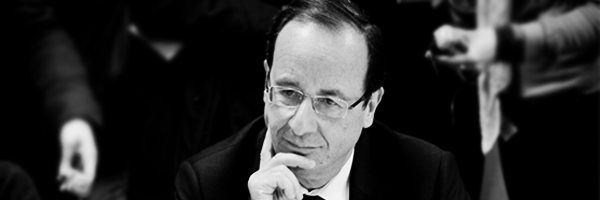Lessons from France: An affair in presidency
It’s safe to say that since being sworn in as President of France in 2012, Francois Hollande has had a turbulent ride. Memorably, on his inauguration day, Paris was drenched by torrential rain and his plane was delayed after being struck by lightning. Some said at the time that it was a bad omen for his presidency and nearly two years later, it looks as if they were right.
Hollande, the former General Secretary of the French Socialist Party, who came to power on a platform of tax rises for the wealthy, increasing employment and boosting economic growth through state intervention, has presided over a waning economy with unemployment rising and entrepreneurs abandoning France in protest at the 75 percent tax rate that Hollande has instituted. In addition, he has been forced to backtrack on key pledges to avoid austerity and has instituted spending cuts. Similarly, the President has divided France with other policies, such as introducing gay marriage and intervening militarily in Mali, with opinion polls showing a near clean divide of the French populace on these issues.
It is not surprising that his approval rating has dropped to a record low 22 percent, with 77 percent disapproving of his presidency
With such a situation, it is not surprising that his approval rating has dropped to a record low 22 percent, with 77 percent disapproving of his presidency. Therefore, he could not afford the public humiliation that he has been subjected to by the French press over the past three weeks since his affair with actress Julie Gayet has been revealed. While Hollande is no stranger to relationship issues, having left his partner of 27 years, former presidential candidate Segolene Royal for Valerie Trierweiler in 2006, his position as President makes his personal life all the more scrutinised. It appears that the scandal will die down after the news that Hollande and Trierweiler have separated was announced, but what is most interesting about the entire debacle is the response of the French population.
Hollande’s personal popularity has actually increased, going from the low twenties to the low thirties in percentage terms and he has even seen his job approval rise after a particularly dismal few months of polling. Many agree that this is unusual, considering reactions to other political sex scandals. The personal popularity of leaders such as Bill Clinton and Silvio Berlusconi plummeted after their indiscretions were made public, while Hollande has seen his rise. One possible reason for the more casual attitude towards Hollande is perhaps because of the French population’s position towards scandal. The previous three Presidents, Francois Mitterrand, Jacques Chirac and Nicolas Sarkozy all had sexual indiscretions and not one of them experienced decreased popularity due to it, even when it became public knowledge, suggesting that Hollande would not suffer.
One possible reason for the more casual attitude towards Hollande is perhaps because of the French population’s position towards scandal.
Another possible reason is the unpopularity of Valerie Trierweiler, who has never enjoyed public support due to replacing the more beloved Segolene Royal and for causing public arguments with those she disliked. The entire affair has also raised questions about the role of a ‘First Lady’ in modern times. Usually, the role would be performed by the wife of an elected political leader with their job usually encompassing tasks including being a silent support to their husband, overseeing domestic arrangements and leading campaigns on ‘feminine’ issues. In recent years, a viewpoint has been growing that the role of a ‘First Lady’ is becoming archaic in a world where the female domestic role is slowly becoming a thing of the past, although evidently with a long way to go. Valerie Trierweiler is a case in point of how the previously defined role of ‘First Lady’ has become archaic.
Trierweiler never officially held the title, due to cohabiting with Hollande rather than being married to him and maintained her career as a journalist, fulfilling her First Lady duties alongside. However, it seems that while there is no actual good reason for a political leader to have a spouse or partner on parade as a First Lady or Gentleman, there is an ever present demand for the spouses and partners of our leaders to be on show and judged, which I feel is a sad reflection of society. While Valerie Trierweiler and others, including Cherie Blair, have bucked the trend and shown how outdated the First Lady role is by pursuing careers alongside, it appears that the expectation of a political spouse or partner standing silently beside the leader is here to stay. This is a great shame.
[divider]
Photo: flickr/FrancoisHollande

Comments (1)
Lets be honest is Ed Miliband pulled a model, he would get the “lad vote”.
Heck if he did a string of affairs he would have a whole grassroot organisation he could mobolise, who in thinking they are alphas, would happily follow him around cause of their small brains.
Seriously, british politics needs more passion. Think italy!